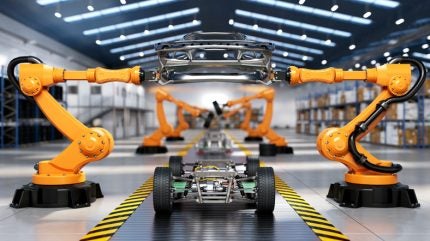
Volkswagen AG is considering closing manufacturing plants in Germany. It would be the first-ever closure in Germany in the company’s entire history.
The announcement could unleash a major labour dispute. The car company is considering abolishing a decades-old agreement with unions to protect jobs and workers.
De-industrialisation fears have been looming for some time, but if the German brand follows through then it will essentially confirm that manufacturing is facing a transformative decline in the country.
If closures happen, where will Volkswagen, the country’s largest industrial employer, takes its business?
Costs, politics and unions
There are a few reasons why Volkswagen is reviewing what would be a deeply disruptive and historic decision.
They face higher logistics, rising energy and labor costs and a complicated political landscape. The anti-immigration Alternative for Germany (AfD) recently won its first state parliamentary election, making it the first far right party to win an election in Germany since World War II.

US Tariffs are shifting - will you react or anticipate?
Don’t let policy changes catch you off guard. Stay proactive with real-time data and expert analysis.
By GlobalDataThere is also frustration over Germany’s lack of competitiveness in the EV sector. Last year, Chancellor Olaf Scholz’ government abruptly removed EV incentives after budget plans fell apart. Oliver Blume, VW Chief Executive Officer, said that “Germany as a business location is falling further behind in terms of competitiveness.”
The strength of unions in Germany is also at the center of the potential closures. Disputes with labor unions led to the departure of multiple of the previous CEOs.
Will China take up the slack?
An IW institute study found that FDI inflows in Germany were at their lowest level in a decade in 2023. Foreign firms invested only €22bn last year.
At the same time, there have been high FDI outflows from the country. Overall net outflows, the difference between outward FDI and inward FDI, was of €94bn.
The study suggested that “the repeated net outflows indicate that these are not exceptional phenomena, but rather the first symptoms of de-industrialisation.”
Against this investment landscape, there has been an uptick of German FDI in China, particularly in the automotive sector. This follows multiple warnings from EU and German officials to companies about the geopolitical risks that come with strengthening economic ties with China.
Volkswagen announced in April that they would invest €2.5bn into the expansion of its production and innovation hub in Hefei, China. Other car companies such as BMW have also made major investment announcements in the country.
As the de-industrialisation trend continues, companies will have to weigh geopolitical risks with saving costs to determine where to invest their money.



